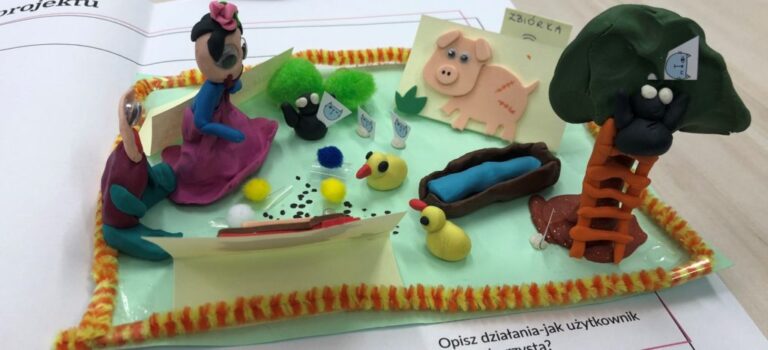
Why Not to Start New Year’s Resolutions Now?
When I write this article it’s the middle of November 2022. Wars all around the globe, sky rocking inflation, upcoming recession, many different diseases – depression and anxiety on the top of the list. Let’s be honest – it isn’t the best landscape that we could’ve imagined for ourselves to live in. What does that have to do with the New Year’s resolutions? When the times are hard, we prefer to stay low, to wait until the situation improves. We wait. And we wait. And we wait a little bit more. And guess what? There is always SOMETHING. Politics, wars, pandemics, environment pollution, education crisis. You name it. There is always something that is going on that we can treat as an excuse to not taking uncomfortable action, to change something, to get a new job or to end a relationship that isn’t working anymore. So the real question is, what can we do to stick to the New Year’s resolutions that most of us make at the very beginning of the year? Let’s start to work on them now. Why most of the New Year’s resolutions don’t stick? We are so motivated, have a lot of energy, sometimes even a great plan. We wait until January 1 and… Only about 16% of us are sticking to the resolutions we make at the beginning of the year, most of us give up during the first 6 weeks. Why? “I don’t have time”, “I don’t have money”, “I need to focus on different things now”, “I am not motivated enough to do this”, “Nobody supports me in this”. That’s just some of the most frequent ones. And it doesn’t really matter if we are talking about getting rid of bad elements of our life or building new, good ones. Excuses are one thing. Why else those resolutions don’t stick? Which of those is applicable to yourself? More than one? All of them? What can we do differently? Each bullet point can be resolved – some of those are easier to manage, some are more complex and difficult. But altogether, it’s possible to finish with the old, bad habits and beliefs about resolutions, and start with being better with them, starting today. 1. We use magical thinking of the New-Year-new-me situation that only lasts few days. This is the reason why I encourage you to start today, not to wait until January 1. Magical thinking can be connected to some traditions, rituals, habits taken from family, religion or society. New Year’s resolutions are part of our social life – media talk about it, we talk about it every year with our friends, the subject is always there when the year starts. Stop it and change the way of thinking and doing. Don’t wait for a perfect timing, it can never come. 2. The resolutions are too big. There is nothing wrong with thinking and dreaming big. My advice is: dream big, plan small. Divide your dreams and goals for smaller chunks that are more achievable. Don’t underestimate the small – sometimes we value only the big things, and it is a crime to our well-being and a sense of self-recognition. Remember, small is better than zero, and a sum of small things makes the whole big thing happen. 3. Those things we want to change are not connected to anything that is already in our life. It is always harder to create a new habit or skill when we start from scratch, then to develop the thing that is already there. When you plan new things you would like to have, always choose the existing habit, activity or a simple thing you do every day. Glue a new thing to the old one, it makes it stick. 4. We want to achieve a resolution in a really short period of time. I know that we all like quick results. We want to believe in losing 10kg in one month or in learning how to read a book per day in two weeks. Try to divide the bigger dreams to the smaller chunks that you can achieve faster. It’ll give you constant boost of motivation and will keep you on track to not quit before you see any results. 5. We assume 0/1 situation (either I achieve it or not – there is nothing in between, no space for flexibility, change or not being perfect all the time). We punish ourselves when we eat a piece of candy when we wanted to quit. Let’s say that you’ve decided to quit eating it starting Monday, and on Thursday you ate a small piece of chocolate. What most people do? “Screw it, I’ve already slipped, so I’ll eat the whole thing and start my diet on Monday”. And it goes on and on, as a never-ending story. What about that: “all right, I’ve slipped – it can happen to anyone”, and keep continue not eating candy after the event. Nobody is perfect and there is no point in punishing ourselves for it every single day. 6. We don’t differentiate goals from habits. A goal is a thing we want to achieve, and a habit is a repetitive, sometimes even unconscious sequence of behavior that can lead us to reach the goal. It’s important that we differentiate those two elements, just to make sure that we build habits that are going to be useful while achieving the goals we want. 7. The resolution is not about us, it’s about other people or things that we have zero influence on. We often quit on things because we don’t see result of our actions. And we don’t see the results, because we want to change something (or someone) that is way out of our influence zone. Remember that we can only change things that are in our scope of control – how we react on certain things, how we communicate, set boundaries or use our time. Focus on that, don’t waste time on something that won’t

















